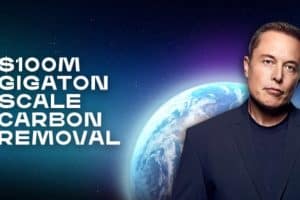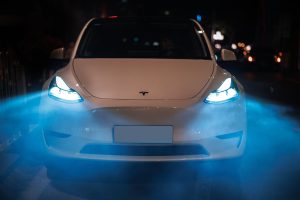- 🚗 Toyota chairman predicts EVs will only reach 30 percent market share.
- 🌐 Toyota emphasizes a multi-faceted approach to electrification, including hydrogen fuel cells, hybrids, and combustion engines.
- 💬 Former Toyota CEO and current chairman, Akio Toyoda, states that BEVs will never overtake gas cars, citing a prediction of only a 30-percent market share.
- 💡 Toyoda argues that customer choices, not regulations or politics, should determine the future of powertrains.
- 🌍 Reference to around a billion people without access to electricity as a reason for supporting diverse powertrain options.
- ⚙️ Toyota faces criticism for being slow to embrace zero-tailpipe-emission technology and continues to emphasize the role of gas cars and hybrids.
- 🔧 Toyota invests in research on solid-state BEV batteries and maintains a focus on hydrogen fuel cells for carbon neutrality.
- 📆 Toyota expects to produce more hydrogen vehicles than solid-state BEVs by 2030.
The automotive industry is at a crossroads, with the shift towards electric vehicles (EVs) gaining momentum. However, Toyota, a long-standing player in the field, is taking a distinctive stance on the future of powertrains. In a recent statement, the chairman of Toyota, Akio Toyoda, predicts that EVs will only capture a 30 percent market share. Let’s delve into the details and explore the implications of Toyota’s multi-faceted approach to electrification.
Toyota’s Multi-Faceted Approach
Toyota has been a vocal advocate for diversifying electrification technologies. Beyond battery-electric vehicles (BEVs), the company emphasizes the importance of hydrogen fuel cells, hybrids, and even traditional combustion engines. This comprehensive strategy sets Toyota apart in an industry predominantly focused on the rapid adoption of BEVs.
Akio Toyoda’s Perspective
Former CEO and current chairman, Akio Toyoda, doubles down on his belief that BEVs will not surpass gas cars. The 30-percent market share prediction reflects a cautious outlook, challenging the prevailing narrative of a complete EV takeover. Toyoda argues that customer choices, devoid of regulatory or political influence, should steer the evolution of powertrains.
Global Considerations
A notable aspect of Toyota’s perspective is its consideration of global realities. With approximately a billion people lacking access to electricity, Toyoda asserts that limiting powertrain choices to expensive BEVs doesn’t align with the diverse needs of individuals worldwide. This raises questions about the inclusivity of the EV revolution and prompts us to ponder whether a one-size-fits-all approach is viable.
Criticism and Toyota’s Response
Toyota has faced criticism for what some perceive as a slow embrace of zero-tailpipe-emission technology. Despite this, the company continues to champion the role of gas cars and hybrids in achieving sustainability goals. Toyoda’s recent statements reiterate the belief that engines will persist, challenging the notion that BEVs are the sole path to a greener future.
Investment in Future Technologies
While Toyota maintains a commitment to conventional engines, it is not oblivious to the changing landscape. The company invests in research on solid-state BEV batteries, a technology heralded for its potential advancements in energy storage. Additionally, Toyota remains focused on hydrogen fuel cells, highlighting a dedication to exploring diverse paths towards carbon neutrality.
Looking Towards 2030
Toyota envisions a future where hydrogen vehicles outnumber solid-state BEVs by 2030. This projection emphasizes the company’s unwavering commitment to hydrogen fuel cell technology. As the industry grapples with the evolution of powertrains, Toyota stands as a testament to the importance of a nuanced and adaptable approach.





